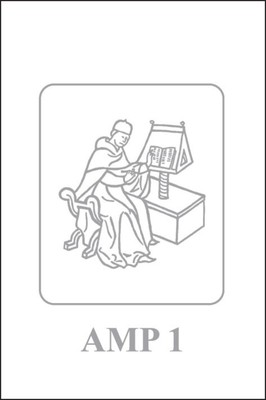
- Išsiųsime per 10–14 d.d.
- Autorius: Petrus Thomae
- Leidėjas: Leuven University Press
- ISBN-10: 9462700354
- ISBN-13: 9789462700352
- Formatas: 16.5 x 24.1 x 2.5 cm, kieti viršeliai
- Kalba: Anglų
- Extra -15 % nuolaida šiai knygai su kodu: ENG15
Atsiliepimai
Aprašymas
This work of Scotist metaphysics is an investigation into the ultimate constitution of things. In the course of this treatise, Petrus Thomae examines whether the essences of things ultimately depend on being thought of by God for their very intelligibility or whether they have it of themselves. Defending in detail the second option, Peter argues that creatures exist independently of the divine intellect in the divine essence. They enjoy real, eternal being in the divine essence and objective being in the divine mind. Aware that these views conflicted with his belief in the Christian doctrine of creation, Peter labored to alleviate the conflict with a theory of noncausal dependence, according to which even if God did not cause creatures to be in the divine essence, nevertheless they are necessary correlatives of the divine essence.
EXTRA 15 % nuolaida su kodu: ENG15
Akcija baigiasi už 6d.09:45:37
Nuolaidos kodas galioja perkant nuo 10 €. Nuolaidos nesumuojamos.

- Autorius: Petrus Thomae
- Leidėjas: Leuven University Press
- ISBN-10: 9462700354
- ISBN-13: 9789462700352
- Formatas: 16.5 x 24.1 x 2.5 cm, kieti viršeliai
- Kalba: Anglų
This work of Scotist metaphysics is an investigation into the ultimate constitution of things. In the course of this treatise, Petrus Thomae examines whether the essences of things ultimately depend on being thought of by God for their very intelligibility or whether they have it of themselves. Defending in detail the second option, Peter argues that creatures exist independently of the divine intellect in the divine essence. They enjoy real, eternal being in the divine essence and objective being in the divine mind. Aware that these views conflicted with his belief in the Christian doctrine of creation, Peter labored to alleviate the conflict with a theory of noncausal dependence, according to which even if God did not cause creatures to be in the divine essence, nevertheless they are necessary correlatives of the divine essence.




Atsiliepimai